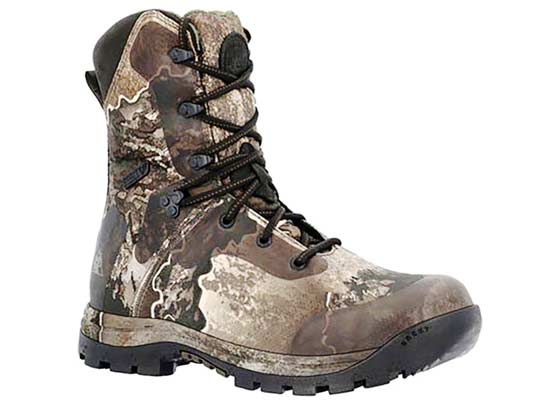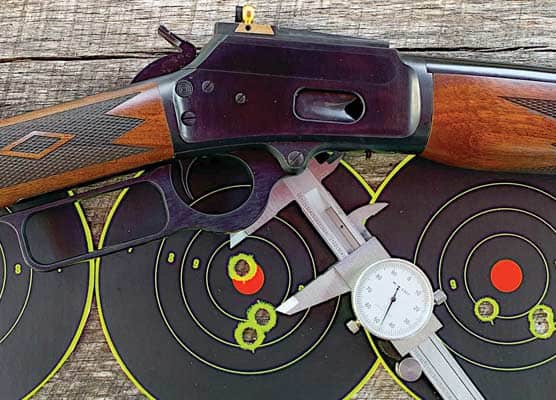Exclusive: Banking On Disarmament
Financial Institutions Comprise The Latest Front In The Gun Rights Battle
“Citigroup is setting restrictions on the sale of firearms by its business customers, making it the first Wall Street bank to take a stance in the divisive nationwide gun control debate,” the New York Times reported in March on the financial community’s response the Parkland killings. “The new policy … prohibits the sale of firearms to customers who have not passed a background check or who are younger than 21. It also bars the sale of bump stocks and high-capacity magazines.”
The previous month, First National Bank of Omaha announced it would not renew a contract with the National Rifle Association for its Visa card, one of several companies that decided public perception meant throwing Association members under the bus by ending discount relationships.
After the Citigroup announcement was reported, other banks cautiously weighed in. Bank of America initially said it would be “reaching out to clients that manufacture assault weapons for non-military use ‘to understand what they can contribute to this shared responsibility.’” Financial giants JP Morgan Chase and Goldman Sachs stayed mum at the time.
Since then, B of A announced it would stop lending to companies that make “military-style” rifles for the civilian market and JP Morgan Chase said it had “limited” relations and would “continue to always refine … robust risk management practices and policies associated with this.”
PNC Financial Services Group pointed out it has been discouraging new loans to gun manufacturers for years and had “very limited exposure” to clients that manufacture such firearms.
“I don’t know if banks or credit card companies or any other financial institution should be the arbiter of what an American can buy,” Wells Fargo CEO Tim Sloan offered, rather than flat-out admitting, of course, they shouldn’t. Naturally, that was not good enough for the Hillary and Obama-supporting American Federation of Teachers, which dropped the bank as a recommended mortgage lender.
“We can only assume that, in light of your silence and the NRA attacks, you have decided that the NRA business is more valuable to you than students and their educators are,” AFT President Randi Weingarten sneered in a letter to the bank the union made sure it shared with a gleeful media.
Major cities began that effort before Parkland, not only controlling their own pension funds, but publicly pressuring (extorting) companies to join them. Pension and equity funds also looked at their “optics” and how virtue signaling would best serve their interests.
“What steps do you take to support the safe and responsible use of your products?” Black Rock, “the world’s largest asset manager,” and a major player in firearms company investments asked gun makers within its sphere of influence.
In a fitting bit of karma Black Rock offered new “socially conscious” funds excluding stocks of gun makers and retailers such as Walmart, Kroger and Dick’s. They all had changed their sales policies (Dick’s actually called for more infringements) to satisfy mob demands and suddenly found the appeasement wasn’t enough. It never is or will be.
“#BoycottBlackrock,” teenage gun-grabber du jour David Hogg demanded despite being wholly unqualified to dispense investment advice. In that sense (and proving “progressive” ideas are generally stale reboots) he echoed rapper Snoop Dogg, who a few years back was a public face of the Campaign to Unload, an effort tracing back to Michael Bloomberg’s hidden hand.
Before that, there were other attempts to sabotage the industry. The Obama administration’s Operation Chokepoint put lawful gun dealers into a higher risk/fraud category, right up (down?) there with Ponzi schemes and pornography. And mobile credit card reader Square joined Paypal and other payment processors in prohibiting the use of their services for retail gun transactions.
Much of the current frenzy is being fueled by articles in “the newspaper of record,” the New York Times (long a narrative-setting enemy of the right to keep and bear arms), which ran recent editorials urging repeal of the Second Amendment. They also ran a series of articles putting a whitewash spin on communism and returning to their Walter Duranty (“Stalin’s Apologist”) roots.
Unsurprisingly, banks are also beneficiaries of collectivism. Citigroup and B of A both got “government bailouts” courtesy of the taxpayers. Gun owners had no say in prohibiting money taken from them being used to guarantee assets of corporate ingrates. And JP Morgan Chase, ATF’s credit card provider, offered a position to get a double-dipping Fast and Furious manager out of the country, was a top Obama and Hillary campaign contributor, and the bank that terminated the account of “3D printed gun” pioneer Defense Distributed.
Republicans, who owe their majorities to gun owners, are split on whether or not corporations engaging in economic disarmament deserve government contracts. A group of 16 wrote the General Services Administration in April, urging cancellation of “a contract of more than $700 billion to partially implement the federal charge card program.” But the majority are keeping quiet or making unconvincing excuses about not interfering with “business decisions.”
We’re not talking about free markets when the banks are in bed with the government. We’re talking about corporate beneficiaries of “public/private partnerships” starving out another industry to achieve goals that politics cannot.
They’re banking on it.
Note: After this article was submitted, I received a news tip that “Amalgamated Bank … with $48 billion in institutional investment assets that emphasizes socially responsible practices, sent a letter … to Sturm, Ruger & Company’s board, demanding that it adopt six reforms or it would not support the re-election of one of the gun maker’s board members, Sandra Froman, who is also an NRA board member.” https://www.usatoday.com/story/money/2018/04/19/amalgamated-bank-urges-sturm-ruger-curb-gun-violence/533650002/


